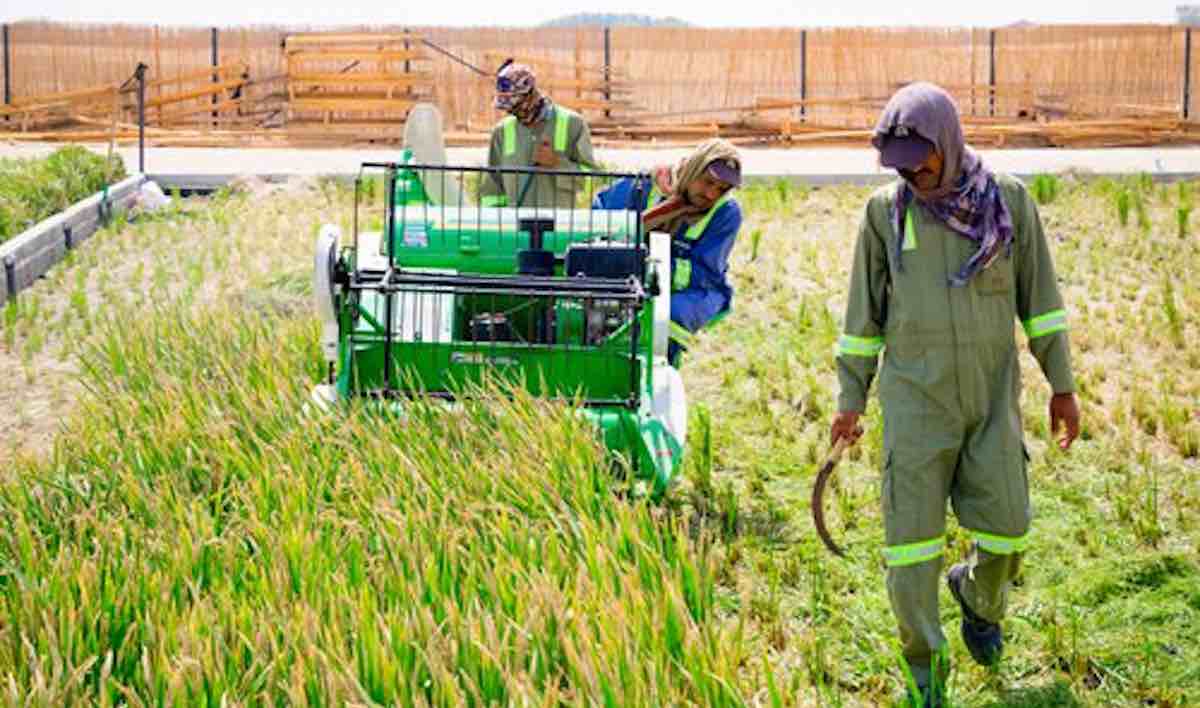A successful experiment in the deserts of Dubai may promise to curb hunger around the world.
A team of Chinese scientists has managed to develop a specific strain of rice that grows in saltwater. Not only that, it yields far more rice than the average freshwater-dependent strains.
Back in January, the researchers were invited by representatives of the United Arab Emirates to plant some of the salt-tolerant rice in different patches of the desert where water is too precious to waste on crops that depend on such intense hydration.
After five months of growth, severals strains of the modified rice yielded as much as 7.8 tons of food per hectare. For comparison, the global average stands at 3.3 tons per hectare.
RELATED: New Cow Feed Causes Fewer Farts, Say Swiss Inventors Who Want to Curb Global Warming
The researchers from the Qingdao Saltwater Rice Research and Development Center are continuing the project by launching an experimental 100-hectare saltwater rice farm in 2019 that will evaluate the costs of production and different farming techniques. They hope to then accelerate their rate of production by 2020.
Their longterm goal is to cover up to 10% of the UAE with the saltwater rice paddies – and if the technology proves to be consistently successful in Dubai’s harsh agricultural climate, then the farms could “feed the entire Arab world.”
CHECK OUT: World’s First Pay-What-You-Can Grocery Store! It Saves Food Otherwise Destined for Trash
According to Yuan Longping, the “father of hybrid rice” and leader of the research institute, there are over 386,000 square miles (1 million kilometers) of land in China that is currently going unused due to the high salt content of the soil.
By planting his specially developed saltwater rice on just one-tenth of this land, it would boost the nation’s food production by 20% – which is enough to feed over 200 million people.
Plant Some Positivity Amongst Your Friends By Sharing The Good News To Social Media – Photo by Qingdao Saltwater Rice Research and Development Center





















salt-y water but still promising!